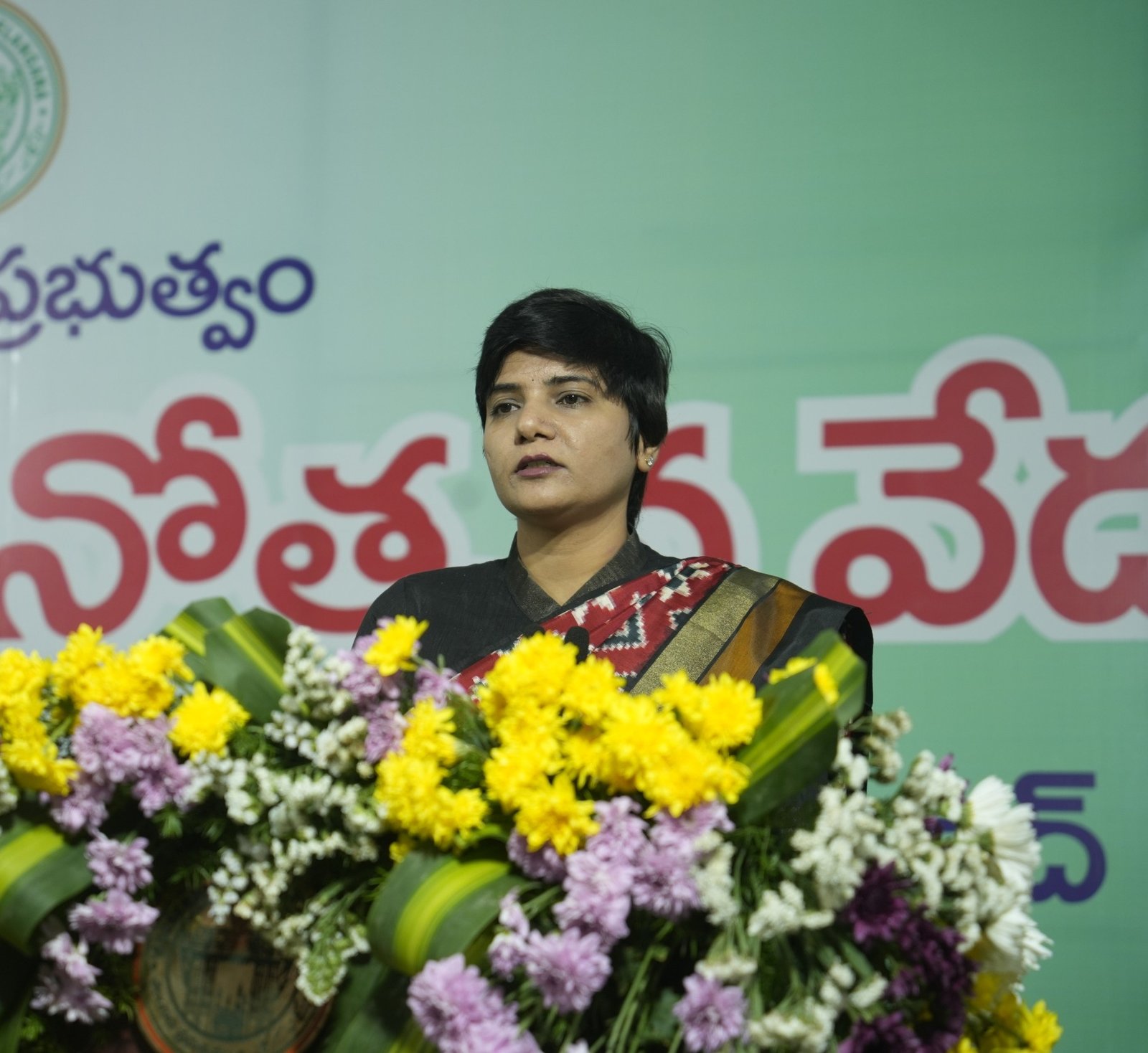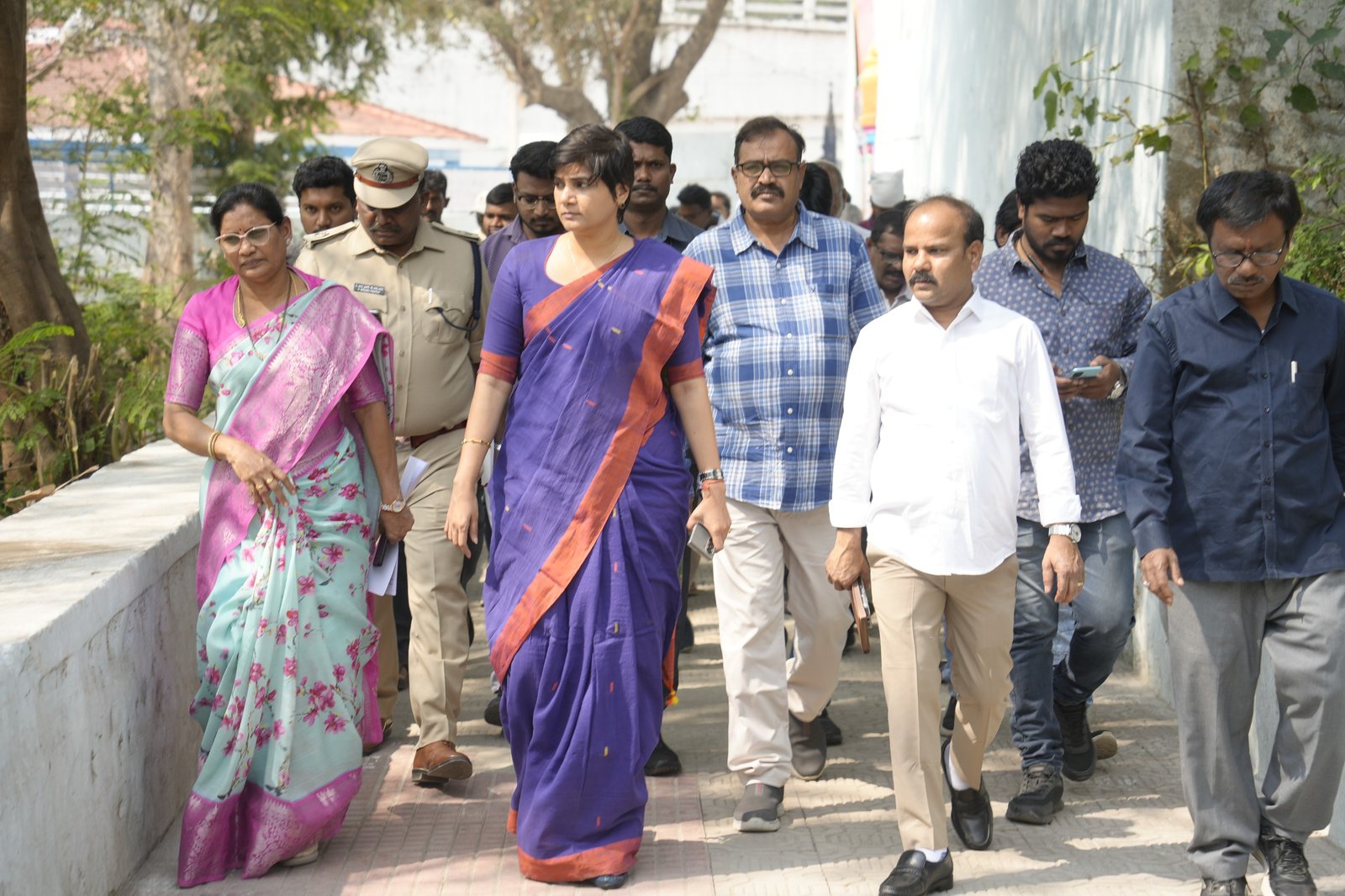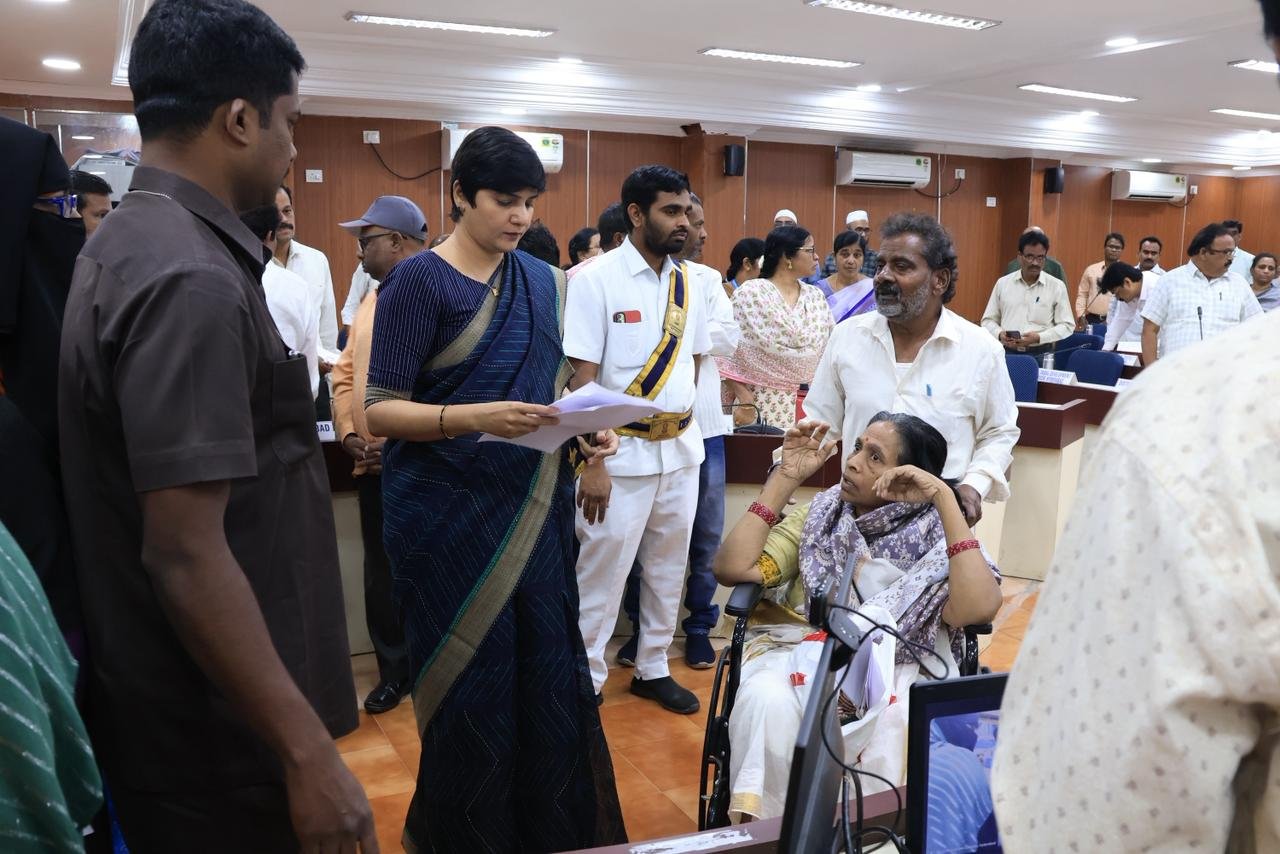
During the COVID-19 pandemic, Hari Chandana, an IAS officer and then the Collector and District Magistrate of Narayanpet, played a pivotal role in empowering women’s Self Help Groups (SHGs), transforming the district’s economic landscape in the process. Her innovative approach not only provided immediate relief but also set the foundation for sustainable development in Narayanpet.
Empowering SHGs Amidst Crisis
Faced with the challenges of the pandemic, which brought economic activities to a standstill, Hari Chandana focused on mobilizing SHGs to produce essential items like masks, sanitizers, and PPE kits. This initiative created over 4,000 jobs at a time when employment opportunities were scarce, providing a critical source of income for many women in the district. The SHGs collectively earned around ₹50 lakh during the lockdown, a significant achievement given the economic constraints of the time .
Innovative Service Delivery
One of the standout initiatives was the “Doorstep Delivery of Essentials” program. Women from SHGs were enlisted to deliver groceries, medicines, and other essentials to households across Narayanpet. This initiative not only ensured the community’s access to necessary items during the lockdown but also empowered women by involving them in a vital supply chain role. The program was a resounding success and received widespread appreciation for its impact and effectiveness.
Fostering Long-Term Sustainability
Beyond the immediate crisis response, Hari Chandana’s tenure in Narayanpet was marked by her efforts to integrate smart village concepts. She emphasized the importance of organic farming, water conservation, and skill development as pillars of sustainable development. Her approach reflected a deep understanding of the need for long-term resilience in rural areas. By promoting these initiatives, she aimed to ensure that the district would not only recover from the pandemic but also thrive in the future .
Vision for Smart Villages
Hari Chandana’s vision extended beyond immediate economic relief. She believed that the dream of smart cities had to start with smart villages and towns. Under her leadership, Narayanpet began to embody this vision, with projects focused on creating self-sustaining communities that could serve as models for rural development across the country .
Impact and Legacy
Hari Chandana’s work in Narayanpet is a testament to the power of innovative governance and community empowerment. By leveraging the potential of SHGs, she not only provided economic opportunities during a crisis but also laid the groundwork for a more resilient and self-reliant community. Her initiatives during the pandemic have left a lasting impact on Narayanpet, making her a standout example of effective public service in challenging times.
Her efforts underscore the critical role that empowered local communities play in building a stronger, more resilient India. The success of these initiatives in Narayanpet serves as an inspiring model for other districts and underscores the potential of SHGs as engines of socio-economic transformation .
https://en.wikipedia.org/wiki/Hari_Chandana_Dasari
Empowering Self-Help Groups: A Beacon of Hope in Narayanpet During the Pandemic
The COVID-19 pandemic swept across the globe, leaving a trail of devastation in its wake. Narayanpet, a district renowned for its rich handloom tradition, was not spared. With economic activity disrupted, traditional weaver communities and women’s self-help groups (SHGs) faced an unprecedented crisis. However, it was during this time of uncertainty that a beacon of hope emerged in the form of Hari Chandana IAS, the then-District Collector of Narayanpet.
Crisis as an Opportunity: Recognizing the plight of weavers struggling with unsold stock and the precarious livelihoods of women in SHGs, Hari Chandana took a bold and innovative approach. She strategically bridged the gap between supply and demand by facilitating a collaboration between weavers and SHGs. This collaboration not only helped clear weaver inventories but also created a new avenue for women’s economic empowerment.
Turning the Tide: Mask Making and Beyond
With the pandemic necessitating widespread mask adoption, Hari Chandana facilitated the procurement of cloth and empowered SHGs with the necessary training in mask production. This initiative not only addressed the critical need for masks in the district but also provided much-needed income for these women.
The story doesn’t end there. Recognizing the potential of SHGs, Hari Chandana encouraged them to diversify their production. This led to the creation of ancillary wellness products, such as ayurvedic immunity boosters using locally sourced ingredients. This diversification not only expanded their income stream but also tapped into the growing demand for natural wellness solutions during the pandemic.
The Impact of Innovation:
Hari Chandana’s vision and leadership transformed a crisis into an opportunity for Narayanpet.
- Economic Empowerment: Over 4,000 jobs were created for women in SHGs, providing them with a much-needed source of income during a time of economic hardship.
- Financial Sustainability: Weavers were able to clear their stockpiles, generating vital income and ensuring the future of their craft.
- Community Resilience: This initiative fostered a sense of self-reliance and community spirit in Narayanpet.
A Model for the Future:
Hari Chandana’s success story in Narayanpet serves as a powerful model for empowering communities during times of crisis. It demonstrates the transformative power of collaboration, innovation, and a commitment to uplifting marginalized populations. As India continues to navigate the complexities of socio-economic development, Hari Chandana’s vision serves as a source of inspiration for future leaders, reminding us that even in the face of adversity, there is always room for innovation and hope.
Empowering Self-Help Groups: A Beacon of Hope in Narayanpet During Pandemic
The COVID-19 pandemic swept across the globe, leaving a trail of economic and social disruption. Narayanpet, a district renowned for its rich handloom weaving heritage, was no exception. Weavers faced plummeting demand and overflowing stockpiles, while a looming health crisis threatened the well-being of the community. However, amidst the despair, a ray of hope emerged in the form of a remarkable initiative spearheaded by Hari Chandana IAS, the then District Collector of Narayanpet.’
Crisis as Catalyst: Recognizing the Opportunity
With a keen eye for local challenges and a vision for sustainable solutions, Hari Chandana identified two vulnerable groups: the struggling handloom weavers and the skilled women belonging to Self-Help Groups (SHGs). The pandemic, characterized by a surge in the demand for protective masks, presented a unique opportunity.
Channeling Skills, Bridging Gaps: A Collaborative Approach
Hari Chandana’s strategy was ingenious and collaborative. She brought together the weavers, with their surplus fabric, and the SHGs, with their sewing expertise. The district administration facilitated the purchase of cloth and the training of SHGs in mask production. This innovative intervention served a dual purpose: it provided financial relief to weavers by clearing their deadstock, and it empowered women by creating new employment opportunities.
Beyond Masks: A Model for Community Resilience
The success of the mask-making initiative went beyond immediate economic relief. It established a model for fostering self-reliance and community resilience. The SHGs were further empowered by venturing into the production of ancillary products like Ayruvedic immunity boosters, creating additional income streams.
Beyond Numbers: The Impact of Empowerment
The initiative’s success can be measured not just in numbers. Over 4,000 jobs were created and Rs. 50 lakhs in profits were generated, providing a much-needed financial cushion for many families. More importantly, the initiative instilled a sense of empowerment and self-belief in the women of the SHGs. It demonstrated the power of collaboration, resourcefulness, and innovative thinking in overcoming even the most challenging circumstances.
Legacy of Innovation: Empowering Communities, Building Futures
Hari Chandana’s intervention in Narayanpet serves as a testament to the transformative power of visionary leadership. By recognizing the untapped potential of existing skillsets and leveraging local resources, she ignited a spark of self-reliance that continues to empower communities in Narayanpet and beyond. The story leaves a lasting message: Even amidst crisis, opportunity can be found, and with strong leadership and a spirit of collaboration, even the most vulnerable communities can be empowered to build brighter futures.







